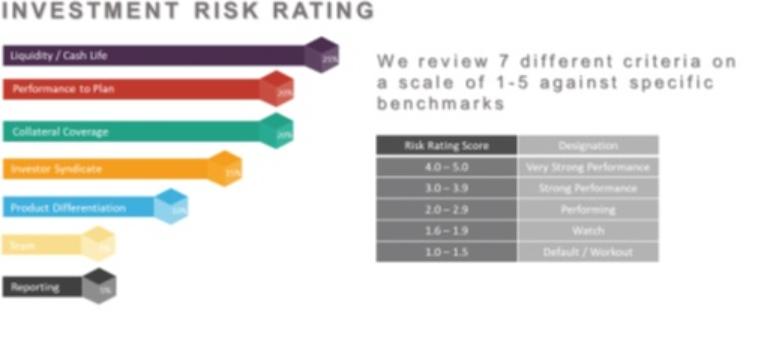The occurrence of recessionary conditions and/or negative developments in the domestic and international credit markets may significantly affect the markets in which we do business, the value of our investments, and our ongoing operations, costs and profitability. Any such unfavorable economic conditions, including rising interest rates, may also increase our funding costs, limit our access to capital markets or negatively impact our ability to obtain financing, particularly from the debt markets. In addition, any future financial market uncertainty could lead to financial market disruptions and could further impact our ability to obtain financing. These events could limit our investment originations, limit our ability to grow and negatively impact our operating results and financial condition.
Internal and external cyber threats, as well as other disasters, could impair our ability to conduct business effectively.
The occurrence of a disaster, such as a cyber-attack against us or against a third-party that has access to our data or networks, a natural catastrophe, an industrial accident, failure of our disaster recovery systems, or consequential employee error, could have an adverse effect on our ability to communicate or conduct business, negatively impacting our operations and financial condition. This adverse effect can become particularly acute if those events affect our electronic data processing, transmission, storage, and retrieval systems, or impact the availability, integrity, or confidentiality of our data.
We depend heavily upon computer systems to perform necessary business functions. Despite our implementation of a variety of security measures, our computer systems, networks, and data, like those of other companies, could be subject to cyber-attacks and unauthorized access, use, alteration, or destruction, such as from physical and electronic break-ins or unauthorized tampering. If one or more of these events occurs, it could potentially jeopardize the confidential, proprietary, and other information processed, stored in, and transmitted through our computer systems and networks. Such an attack could cause interruptions or malfunctions in our operations, which could result in financial losses, litigation, regulatory penalties, client dissatisfaction or loss, reputational damage, and increased costs associated with mitigation of damages and remediation.
Third parties with which we do business may also be sources of cybersecurity or other technological risk. We outsource certain functions and these relationships allow for the storage and processing of our information, as well as client, counterparty, employee, and borrower information. While we engage in actions to reduce our exposure resulting from outsourcing, ongoing threats may result in unauthorized access, loss, exposure, destruction, or other cybersecurity incidents that adversely affects our data, resulting in increased costs and other consequences as described above.
We and our third party providers are currently impacted by quarantines and similar measures being enacted by governments in response to the COVID-19 pandemic that are obstructing the regular functioning of business workforces (including requiring employees to work from external locations and their homes). In response to the COVID-19 pandemic, we instituted a work from home policy until it was deemed safe to return to the office. We have since reopened our principal office but permit employees to work from home on a voluntary basis. An extended period of remote working, whether by us or our third party providers, could strain technology resources and introduce operational risks, including heightened cybersecurity risk. Remote working environments may be less secure and more susceptible to hacking attacks, including phishing and social engineering attempts that seek to exploit the COVID-19 pandemic. Accordingly, the risks described above are heightened under current conditions.
Falling interest rates may negatively impact our investment income.
As a result of the decision by the Federal Reserve Board to decrease the target range for the federal funds rate in response to the COVID-19 pandemic, interest rates have decreased. Some of our credit agreements with our portfolio companies utilize the prime rate as a factor in determining interest rate. However, under the Credit Agreement with Credit Suisse, borrowing generally will bear interest at a rate of the three-month LIBOR plus 3.25%. Accordingly, a reduction in interest rates will result in a decrease in our total investment income unless limited by interest rate floors. Further, our net investment income could decrease if there is not a corresponding decrease in the interest that we pay on our borrowings.
